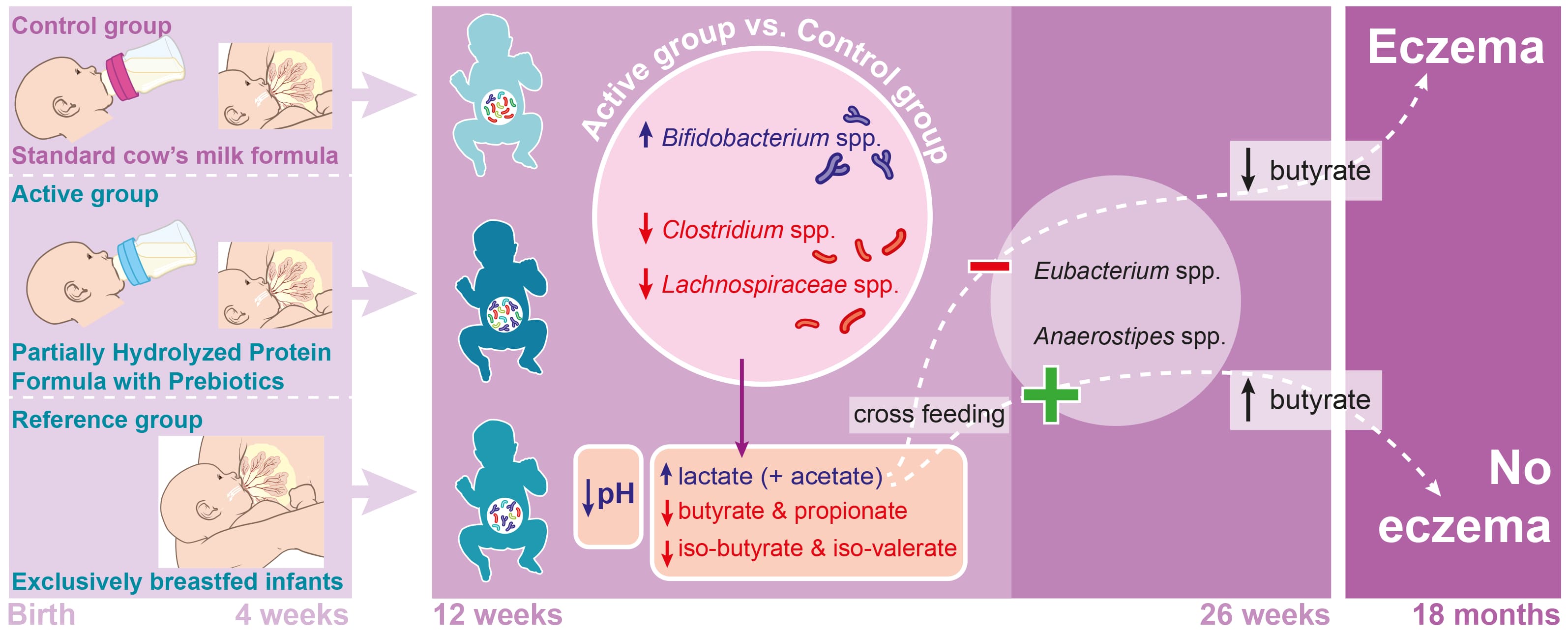The prevalence of allergic diseases worldwide is rising dramatically in both developed and developing countries, affecting today 30 to 40% of the world population. Dysbiosis of the gut microbiota, and imbalance of gut bacteria composition compared to healthy individuals, is associated with an increased risk of allergies. There is growing evidence that a balanced gut microbiota is a fundamental factor to strengthen the immune system and thus help reduce the risk of allergy.
The PATCH Microbiota study investigated the effect of early life nutrition on the assembly of intestinal microbiome in infants at high risk of allergy.
The study showed that partially hydrolysed protein (pHP) supplemented with prebiotics including scGOS/lcFOS modulates the gut microbiota of high risk infants for allergy closer to that of breastfed infants.
It was published in September 2017 in the Journal of Allergy and Clinical Immunology (JACI), and is available online: http://www.jacionline.org/article/S0091-6749(17)31343-X/pdf.
Title: “Intestinal Microbiota in Infants at High-risk for Allergy: Effects of Prebiotics and Role in Eczema Development.”

About PATCH Clinical study:
PATCH Microbiota is a sub-study of the PATCH clinical study, investigating the effect of pHP formula supplemented with specific prebiotic mixture including scGOS/lcFOS on the reduction of cow’s milk protein allergy development in high risk infants.
PATCH study results showed that early nutritional intervention with pHP with specific prebiotic mixture including scGOS/lcFOS elicits a number of positive benefits for infants with a high risk of allergy, including actively promoting oral tolerance and thereby reducing the risk of allergic manifestations.
Results indicates that pHP formula with specific prebiotics can be an effective dietary strategy to help reduce the burden of allergy in infants at risk, by promoting the natural development of oral tolerance through the interplay with the gut microbiota and the immune system.